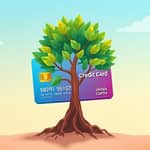
Getting your first credit card is an exciting step in financial independence and credit building. This guide will walk you through everything you need to know—from understanding how cards work to managing balances and avoiding common traps. Armed with these insights, you can navigate the credit landscape with confidence and start establishing a strong credit profile that will serve you for years to come.
A credit card functions as a revolving line of credit issued by banks, credit unions, or financial institutions. It allows you to borrow up to a set limit, make purchases, and then pay off the balance. While a credit card resembles cash, it’s actually a short-term loan that must be repaid within a billing cycle.
Most cards come with variable interest rates mean you could see fluctuations in your Annual Percentage Rate (APR) over time. If you pay your full statement balance within the grace period typically lasts 21 days after billing, you avoid interest charges. Failing to pay on time can trigger penalties and cost you more in the long run.
Selecting the right type of card is essential for your credit journey. Whether you need collateral or want to earn rewards, there’s a card designed for your situation. Compare options carefully before applying.
Before you apply, take stock of your credit profile and gather necessary documents. A smooth application process means fewer rejections and less impact on your credit score.
After submitting your application, check your email or account dashboard for instant approval or follow-up requirements. Upon approval, review your card terms closely before activating the card, and consider setting a manageable credit limit.
Building strong credit starts with disciplined habits. The sooner you establish good practices, the more you benefit from lower rates and better financial opportunities.
By following these practices consistently, you’ll cultivate positive habits that strengthen your credit history. Over time, responsible usage can unlock higher credit limits, lower interest rates, and exclusive card perks.
Even well-intentioned consumers can fall into credit traps. Awareness and preparation are your best defenses against costly mistakes that can linger on your report.
Being aware of these challenges upfront allows you to set guardrails and maintain control over your spending and credit health. Knowledge is your first defense against financial missteps.
The credit ecosystem revolves around a few critical metrics and deadlines. Being familiar with these will give you an edge when negotiating rates or planning major purchases.
Average APR stands at 16.65% as of May 2022. Always pay within the grace period typically lasts 21 days to avoid interest, and be mindful that late payments can remain on your report for up to seven years. Annual credit reports are free from Equifax, Experian, and TransUnion—take advantage of this free credit reports every year offer.
Credit scores factor in payment history, credit utilization, length of history, credit mix, and new inquiries. Strive to keep balances low, avoid frequent applications, and maintain a diverse array of accounts over time.
If you can’t secure a traditional card, consider becoming an authorized user on a family member’s account or applying for a secured card. These methods allow you to build history without high risk to issuers.
Secured cards require a deposit that acts as your credit limit, making them low-risk for issuers. As you demonstrate on-time payments, many issuers will return your deposit and transition you to an unsecured product.
Take advantage of modern technology to simplify credit management. Most issuers and credit bureaus offer free or low-cost tools to monitor scores, set alerts, and manage payments.
Some services even simulate how financial decisions, like paying off a balance or closing an account, impact your score. Regularly reviewing these projections can help you make strategic choices.
Starting smart with your first credit card lays the foundation for a lifetime of responsible borrowing. Each on-time payment, balanced budget, and well-chosen card option builds your financial reputation.
Remember, credit is a tool, not a reward. Treat your card like cash—plan purchases, set limits, and pay diligently. In doing so, you’ll build a credit legacy that empowers every future financial ambition.
References













